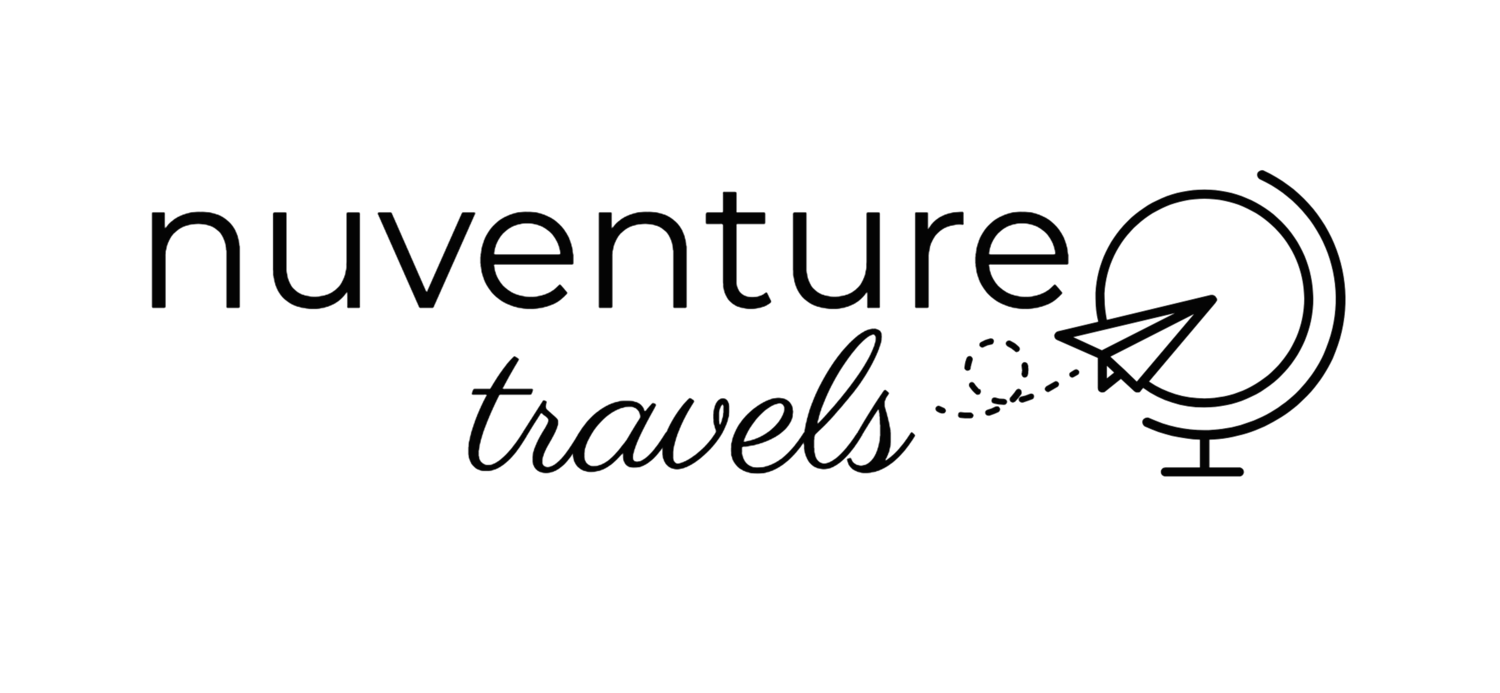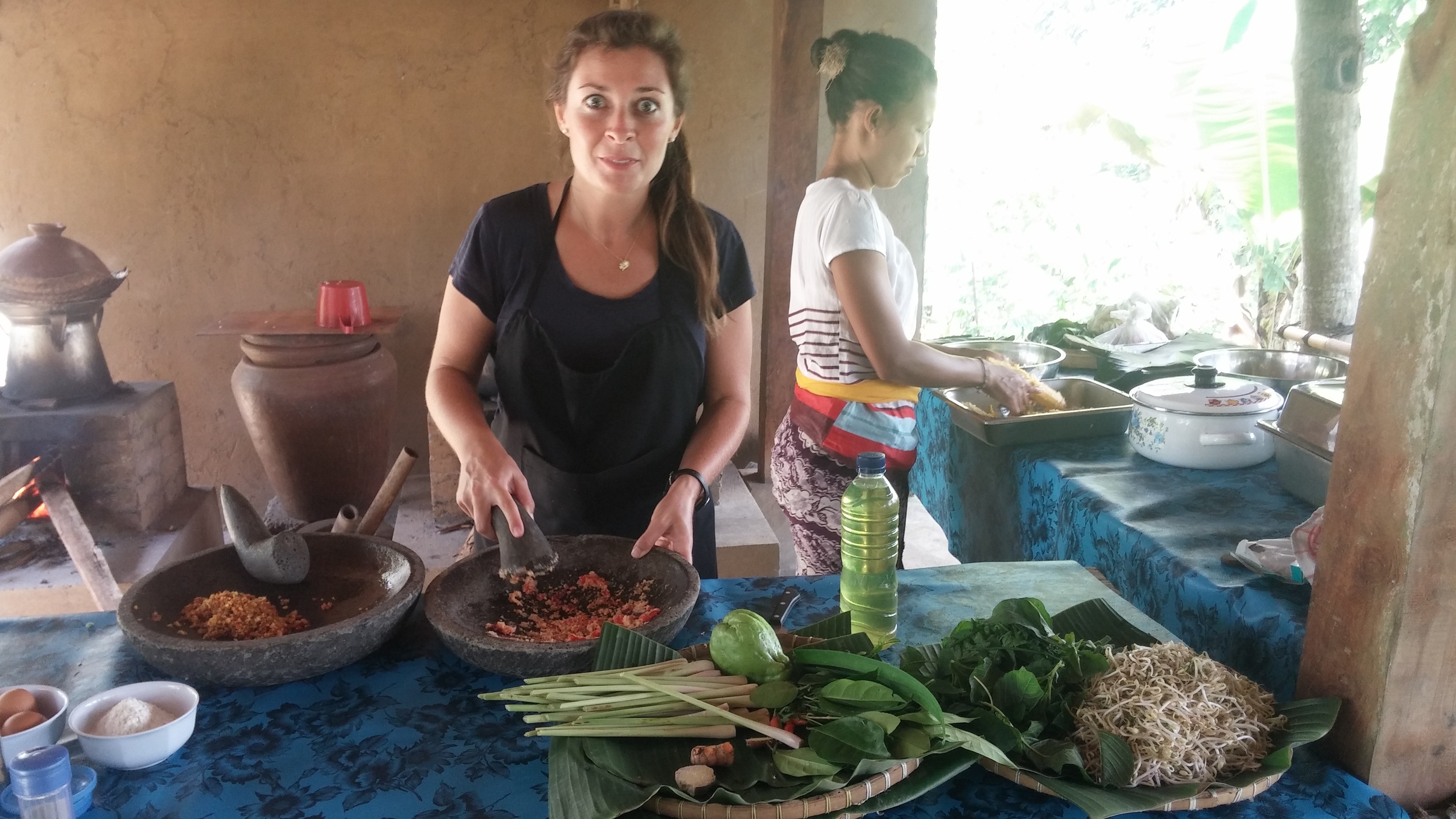Our first 24 hours in Ubud, Indonesia changed the trajectory of our nuventures this summer.
The morning started off groggy as we were whisked off at 8 am to a Tinggly cooking class with a local Balinese family. Six hours later on the car ride back we were absolutely silent from the pure exhaustion of full bellies and our minds bursting from the newness of the day. Our entire beings- minds, bodies and souls- were worked from every angle as we were drenched, soaked and fully immersed in Balinese culture. What we had learned over the short time with this family had challenged every bit of life we have ever known. Our time there was one of the most impactful cultural experiences we have had yet on our nuventures.
I have been struggling to write this blog over the last several days, because I can't condense this wonderful experience. There is too much to share about this beautiful culture we have only just begun to understand. So, I have decided to break up our reflections into sections.
Welcome to Part Putu (the first)!
The taxi's twists and turns through narrow alley ways brought us to the family's compound entrance. As we climbed the concrete stairs and crossed over the threshold, we knew we were in for an adventure. We really didn't know what to expect. We only knew there would be a Balinese family and some sort of cooking class involved. The experience redefined our nuventures!
Made, our hostess, immediately calmed any nerves we had as she walked toward us welcoming us in with her bright and beautiful smile while gesturing us forward. As we met, the normal start to a new relationship began in broken English. “Where are you from?”
“America”
We have begun to reply this way, because we have received many confused faces in response to the "United States." However, eyes light up when people hear "America." Normally, the next question is, “Ah! America! What part? New York? Los Angeles?”
We have also started responding with “Colorado.” Folks aren't too familiar with Georgia.
Made’s expression lit up, “I’ve been to Denver!”
“What?!?” Here we are standing in a strange family’s yard in Bali, Indonesia and Made and Adam are playing the name game of who they both know in the accounting world in Denver, Colorado. The world doesn’t get much smaller than that!
We spent the first bit of the day excited to hear all about Made’s US adventures spending months in Colorado and Hawaii. Just crazy! Now, she lives in Ubud, Indonesia and is married with two adorable kiddos. She was excited to tour us around her family's compound before we started on the cooking.
To me, the word “compound” sounds so harsh and confining; a word you would use to describe a section of a prison. Oh, no. To the Balinese, this is just the English term for their home. Their compound is the center of the universe where the most important pieces of life happen. This is their home.
In the Balinese culture, an entire family lives in a compound together. However, each family has their own separate home on the property. Normally, when a son gets married, he and his wife move into a house on his parent’s compound and they start their family there. Made's husband has several brothers. Each is married and now has their own home within the compound.
Opposite from western culture, in some Balinese families, the youngest son receives most of the inheritance instead of the oldest. We learned the implications of this as the youngest son had the first and highest house in the compound. The oldest son's house was the furthest back on the property. Interesting...
One way to know a Balinese person’s placement in their family is by their name. We had already met a lot of Putu’s, so this was a revelation for us! It turns out, Putu, Wayan or Gede is the name for every family’s first child. Made (our hostess' name) or Kadek is the name for the second child. The third child is Nyoman or Komang and the fourth is Ketut. These names are the same whether the child is a boy or girl. Since there are a lot of Putus running around, they are distinguished by their last name or a nickname. Interestingly, if a family has more than four children, the naming cycle repeats and the fifth child will be named Putu Balik meaning “another Putu.” We just met a man that is the third Made of his family! There were so many kids, the names cycled through for a third time!
We were still standing at the entrance of their compound and our minds were already blown and reeling!
One of the most important areas of the compound, is the family’s temple. Everyone in the family comes together for ceremonies often. As we continue to learn more about the Balinese culture everyone says, "Many, many ceremonies!"
Ceremonies are always taking place for every kind of event you could imagine; the new moon, full moon, blessing everything in the compound made of iron, birthdays, even weddings! Every six months birthdays are celebrated, but are very different. They don't celebrate the day you were born and Made thought we were crazy when asked if they have birthday cake. She said she has never experienced a birthday cake in her life!
Made's auntie came out of the kitchen to say hello. She let us sneak a peak into her kitchen while she was cooking!
As we were all speaking in broken English to each other, we heard Made say the word "placenta." We were shocked. Made had great English, but placenta is a pretty intense word to know. I mean, I can count on my fingers the amount of times I have had a conversation about placentas. Adam and I both repeated, "placenta?" She said "Yes, yes. We give offerings to the placentas every day." The world placenta was confirmed again!
We learned placentas are a very important part of life for the Balinese. The placentas from each birth are put into a coconut shell and buried near the entrance of the family’s house and marked with a flat stone. The four sons' placentas were buried to the left of the front steps and the one daughter's was to the right of the steps. This tradition is believed to attract spiritual guides for each child. A Balinese friend of ours, Guli, later described the placenta as a "brother" and no matter where he goes or travels, he only dreams when he is at home where his placenta is.
As Adam and I were learning all this, we were nodding our heads a lot and just trying to keep up as our minds were reeling. Everything Made was explaining as her normal way of life was so drastically different than anything we have ever known. Trying to get grips on this new way of life, I asked, "Made, what did you think about life in America being so different from here?” Since Made had spent so much time in the US, I was so curious to know her perspective.
She laughed, was a little hesitant and explained her take on the differences.
She essentially explained that Americans spend every day working because we are so independent. We aren't with our family, so we have to work to have food and a home. She continued to say that if she didn't work for a week, she would be okay because she lived with her family and would still have food from their land. Summing it up, "Americans spend their days working and a Balinese day is spent with the family."
Wow! The honest truth! I'm sure my look wasn't too different than this...
Want to know what happens next? Read on to Drenched in Balinese Culture: Made (Part 2) here!
















